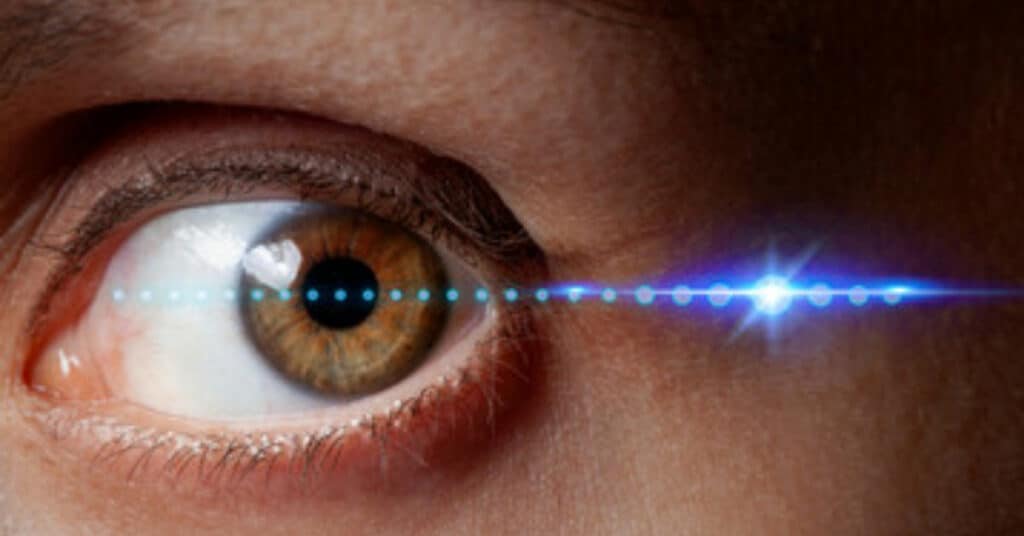
Eye Movement Desensitization and Reprocessing (EMDR) is a therapeutic technique that will take you on a healing and transformation journey. Consider a therapy that uses your brain’s power to heal from trauma and takes you toward a brighter and more resilient future.
This life-changing journey is available in the lively backdrop of West Palm Beach, Florida. Our Olympic Addiction Treatment Center is a safe refuge where your healing is prioritized. We serve as a beacon of hope for people suffering at the hands of addiction, depression, and other mental health conditions.
What is EMDR Therapy?
EMDR, or Eye Movement Desensitization and Reprocessing, is a form of therapy for people who have gone through negative past experiences. Generally, the aim is to remember an unpleasant incident from the past and then reorganize its memory by introducing more affirmative thoughts.
This technique involves rapid eye movements or any other alternating movement. It’s like giving your brain a gentle nudge to recover and deal with difficult memories naturally.
The process is outlined in eight steps. This might sound tiring, but the good news is you do not have to do extra work after sessions. Once the session is completed, you are free. You do not need to journal or report anything after an EMDR session.
If you have been thinking about trying EMDR, seeking advice from a proficient mental health practitioner is necessary. Fortunately, at our center, we are with you all the way on this healing journey because our place has top counselors.
What Happens During EMDR Therapy?
Are you curious about how EMDR sessions go? Let’s review these eight stages (1) one by one to get an idea of what will happen in the session:
- History-Taking: Your first step along this journey involves looking back. You would share your life experiences and challenges. This will help in deciding goals with your therapist to use EMDR for maximum benefit.
- Preparation: Preparing for the EMDR process is the next thing to do. The therapist will explain what will happen and how it works. Coping with stress is also something you will talk about. It is done so that you can be prepared as much as possible.
- Assessment: This phase during EMDR involves selecting specific memories or experiences. You and your therapist will decide where to start first. Healing goals guide these decisions.
- Desensitization: This is the magical and most important step. You visit a disturbing memory while receiving bilateral stimulation (usually eye movement). This helps the brain process that memory again but this time with less emotional charge.
- Installation: Once the trauma or any negative feelings have been removed, they are replaced with positive thoughts for self-empowerment. By doing this, you will be able to convert your negative beliefs into more empowering ones.
- Body Scan: This step specifically focuses on any remaining physical tension or discomfort related to the memory. Take a moment here and feel your body from top to bottom for any tightness, pain, or weightiness at all.
- Closure: You will be given some time to discuss how the session made you feel. At the end of this session, you will be led through relaxation techniques.
- Reevaluation: During your planned treatment, your therapist will ask how you are doing. This is the most important part of ensuring that these positive changes endure and are helpful even after EMDR.

Who Can Benefit from EMDR Therapy?
EMDR is a very useful technique with many applications in psychotherapy (2). It promotes brain healing by repeatedly exposing upsetting memories and reshaping the feelings associated with them. EMDR is a brain-based therapy that promotes transformative healing.
EMDR has been shown to be extremely effective in dealing with traumatic experiences. EMDR therapy promotes healing without retraumatization and leads to a more peaceful existence.
Mental health conditions that can be addressed using EMDR include:
- Anxiety and Phobias
- Trauma and PTSD
- Depression
- OCD (Obsessive-Compulsive Disorder)
- Chronic Pain
- Addictions
- Stress Management
- General Well-Being
Why Choose Us?
In the heart of West Palm Beach, our addiction treatment center provides the best therapy options for you. We don’t take you as a client but as a family member needing support and care.
For your ease and comfort, we have different options available for therapy:
- Online sessions
- Physical sessions
- One-to-one sessions
- Group therapies
With us, your healing is in safe and competent hands.
(1)https://www.ncbi.nlm.nih.gov/pmc/articles/PMC8185342/
(2)https://www.ncbi.nlm.nih.gov/pmc/articles/PMC3951033/





